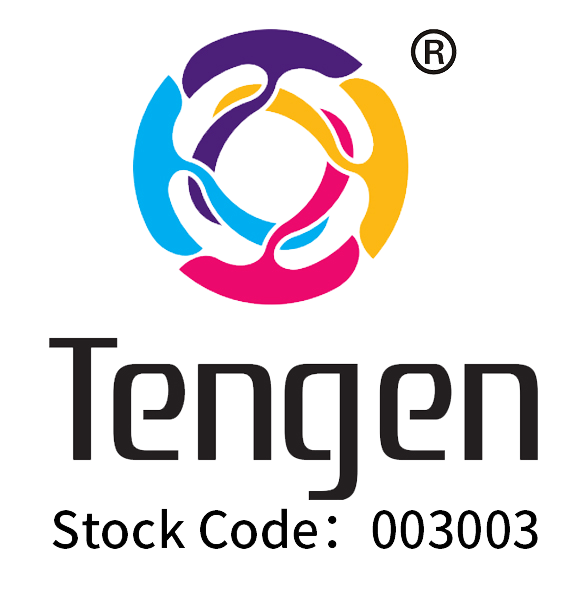ပုံမှန် ပลาစတစ် မောင်လာအက်သာများ၊ ဥပမာ poly mailers တို့သည် ပတ်ဝန်းကျင်ဆိုင်ရာ ရောဂါဖြစ်စေခြင်းနှင့် ကမ္ဘာလုံးဆိုင်ရာ ပလာစတစ်အ CreateTable အဆင်မပြေမှုအတွက် အဓိကဆုံး အကျိုးသက်ရောက်မှုများထဲမှ တစ်ခုဖြစ်သည်။ အမှန်တော်၊ နှစ်စဉ် ၃၀၀ သန်းထက်ပိုသော ပလာစတစ်များကို ထုတ်လုပ်ကြသည်၊ ဒီမှာ ပစ္စည်းများသည် မဟုတ်ဘီယိုဒီဂရေးဘွဲ့ဖြစ်သဖြင့် လူသားများ၏ အဆိုပါ ပြဿာတို့ကို အဓိကအကျိုးသက်ရောက်မှုဖြစ်သည်။ ဒီပစ္စည်းများသည် ပျော်ရွှင်မှုရောင်းကို အနည်းငယ်ချိန်များအတွင်း ပျက်စီးစေရန် ရာစုများလုံး ချိန်များကို ယူဆနိုင်သည်။ ထပ်ပြီး ပလာစတစ်ရောဂါဖြစ်စေခြင်းသည် သံသယရှိသော ရေကြီးကျောင်းတွင် ဆိုင်ရာ ရောဂါဖြစ်စေခြင်းကို ရောက်နိုင်သည်။ ခန့်မှန်းခြင်းများအရ နှစ်စဉ် ၁ သန်းထက်ပိုသော ရေကြီးကျောင်းတွင် ရှိသော ရောင်းများသည် ပလာစတစ်အဆင်မပြေမှုကြောင့် သေဆုံးသည်။ ဒီလို အရောင်းအကြောင်းများအတွက်၊ ဒီသို့ ပတ်ဝန်းကျင်ဆိုင်ရာ အဆင်မပြေပစ္စည်းများမှ လွတ်လပ်စွာ ရွေ့လျှော့ချခြင်းသည် လုံလောက်ရေးရှိ ရောင်းပစ္စည်းများအတွက် အဓိကဆုံး လမ်းကြောင်းဖြစ်သည်။ ပတ်ဝန်းကျင်ဆိုင်ရာ အဆင်မပြေမှုကို လျှော့ချရန်နှင့် ရေကြီးကျောင်းစနစ်များကို ထိန်းသိမ်းရန် အရည်အချင်းဖြင့် အသက်ရှင်မှုသို့ ရွေ့လျှော့ခြင်းသည် လိုအပ်ချက်မဟုတ်ပဲ အရာရှိတစ်ခုဖြစ်သည်။
လူမှုပลาစတစ် မေလားများမှ မာနီလာ နှင့် ပက်ဒ်ထည်များအဖြစ် စာရေးဆွဲသော ကျေးဇူးရှိသော ဖြစ်စဉ်များသို့ လှုပ်ရှားခြင်းမှာ သဘာဝကို ထိန်းသိမ်းသော ဖြစ်စဉ်တစ်ခုကို ပေးဆောင်ပါသည်။ ဒီစာရေးဆွဲသော ရွေးချယ်မှုများသည် လူမှုပလာစတစ်ထက် လျှော့ချသော လိုအပ်ချက်များကို လုံးဝ လျှော့ချနိုင်ပါသည်။ ထို့အပြင်၊ စာရေးဆွဲမှုကို သဘာဝရှိ အလျှော်လွန်သော ရွှေ့ပြောင်းမှုများကို အသုံးပြုခြင်းဖြင့် သဘာဝပေါ်တွင် အကျိုးသက်ရောက်မှုကို လျှော့ချနိုင်ပါသည်။ ထပ်တူသော အသုံးချိန်များကို စာရေးဆွဲမှုများဖြင့် လျှော့ချနိုင်သည့် အချိန်မှာ ၂၀၂၀ ခုနှစ်တွင် ၆၆% ခန့်ဖြစ်ပါသည်။ စာရေးဆွဲသော ပစ္စည်းများကို အသုံးပြုခြင်းဖြင့် လူငယ်များ၏ သဘာဝကို ထိန်းသိမ်းသော လိုအပ်ချက်များကို အကျိုးပြုနိုင်ပါသည်။
စာရေးချက်အတွက် သုံးလို့ရသော စားနိုင်သော ဂုဏ်သည် အဓိပ္ပါယ်မှာ သူ့ဟာ ဘာသာဖြင့် သဘာဝတွင် ပျက်စီးသွားပြီး ဒေသဆိုင်ရာ အဆင်မပြေသော အရာများကို လျော့နည်းစေသည်။ သုံးလို့ရသော အရာမဟုတ်သော အရာများထက် စာရေးချက်အတွက် သုံးလို့ရသော အရာများသည် သဘာဝတွင် ပျက်စီးသွားသည်။ ထိုဂုဏ်သည် တန်ဖိုးရှိသော အရင်းအမြစ်များကို လည်ပတ်စဉ်တွင် ထိန်းသိမ်းထားသည်၊ ထို့အပြင် သစ်အရင်းအမြစ်များအတွက် လိုအပ်ချက်ကိုလည်း လျော့နည်းစေသည်။ ထပ်ပြုသုံးနိုင်သော စာရေးချက်အတွက် သုံးလို့ရသော အရာများ၏ အဆင့်အတန်းများသည် အရင်းအမြစ်များ၏ ကျဆင်းမှုကို အလွန်ကြီးမားစွာ လျော့နည်းစေပြီး လုံလောက်သော လုပ်ငန်းများကို ထောက်ခံပေးသည်။
FSC နှင့် SFI သိုးတမ်းများကို စီးပွားရေးဆိုင်ရာအထူးသဖြင့် လှူဒါန်းထားသော ဘာသာရေးများမှ စာရင်းချုပ်ထုတ်လုပ်ထားသည့် စက်ဝိုင်းများကို ပြုလုပ်ရန် အခြေခံတဲ့ ရွှေ့ပြောင်းမှုများကို ထောက်လှမ်းပေးသည်။ ထိုသိုးတမ်းများက ကုန်သွယ်လမ်းကြောင်းတွင် လွတ်လပ်ချက်ကို ပြသပြီး သုံးသပ်သူများအား သဘာဝကို ထောက်လှမ်းသော အရာဝတ္တုများကို ရွေးချယ်ရန်အတွက် သိသာမှုကို ပေးဆောင်သည်။ သဘာဝကို ထောက်လှမ်းသော သုံးသပ်သူများအကြားတွင် ကြိုးစားမှုကို တိုးတက်စေရန် သို့မဟုတ် သဘာဝကို ထောက်လှမ်းသော အရာဝတ္တုများနှင့် လှူဒါန်းထားသော စီးပွားရေးဆိုင်ရာ စီမံကိန်းများကို ရှောင်ရှားရန်အတွက် သိုးတမ်းထုတ်ထားသော ပစ္စည်းများကို အသုံးပြုခြင်းမှ အကျိုးသက်ရောက်မှုများကို ပေးဆောင်သည်။
စက္ကူအိတ်များတွင် ပလပ်စတစ်အိတ်များနှင့်စာရင် ကာဗွန်ခြေရာခံမှုနည်းပါးပြီး အများအားဖြင့် ထုတ်လုပ်မှုလုပ်ငန်းစဉ်များချောမွေ့လာခြင်းနှင့် ဒေသတွင်းအရင်းအမြစ်များ ရရှိနိုင်မှုကြောင့် ဖြစ်သည်။ ကာဗွန်ထုတ်လွှတ်မှု လျှော့ချမှုသည် ဒေသဆိုင်ရာ ထောက်ပံ့ရေး ကွင်းဆက်များမှ ထိရောက်မှုကို မြှင့်တင်ပြီး ပတ်ဝန်းကျင်အပေါ် သက်ရောက်မှုကို လျှော့ချပေးသည့် သယ်ယူပို့ဆောင်ရေး ကုန်ပစ္စည်းများတွင်လည်း ထင်ရှားသည်။ ဒီတည်တံ့တဲ့ သင်္ဘောပို့ဆောင်ရေး နည်းလမ်းတွေကို အသုံးချခြင်းအားဖြင့် ကုမ္ပဏီတွေဟာ ပတ်ဝန်းကျင်ကို သတိပြုတဲ့ ဖောက်သည်တွေကို သူတို့ရဲ့ ကာဗွန်ခြေရာအမှတ်အသား လျှော့ချမှုကို စျေးကွက်တင်ဖို့ ကောင်းမွန်တဲ့ နေရာမှာရှိပြီး ဒီနည်းနဲ့ ပတ်ဝန်းကျင်ကို သတိပြုတဲ့ စားသုံးသူတွေရဲ့ တိုးပွားနေတဲ့ လူဦးရေကို ဆွဲဆောင်ပါတယ်။
ဒီနေ့ဈေးကွက်မှာ ပတ်ဝန်းကျင်ဆိုင်ရာ အသိစိတ်ဟာ အရှိန်တစ်ခုထက် ပိုပါတယ်။ ဒါက မျှော်လင့်ချက်ပါ။ လေ့လာမှုတွေက သုံးစွဲသူ ၇၃% လောက်ဟာ ရေရှည်ခံတဲ့ ထုတ်ပိုးမှု ရွေးချယ်မှုအတွက် ပိုပေးချင်တယ်လို့ ပြသတယ်။ စက္ကူစာအိတ်တွေကို သုံးလာခြင်းဖြင့် စီးပွားရေးလုပ်ငန်းတွေဟာ စားသုံးသူ တန်ဖိုးထားမှုတွေနဲ့ ကိုက်ညီနိုင်ပြီး နောက်ဆုံးမှာ စားသုံးသူတွေကို ပိုပြီး သစ္စာရှိလာစေပါတယ်။ ဒါဟာ လက်ရှိလိုအပ်ချက်ကို ဖြည့်ဆည်းပေးရုံသာမက၊ ထုတ်ကုန်များ၏ ရေရှည်တည်တံ့မှုကို အခြေခံပြီး ဝယ်ယူမှု ဆုံးဖြတ်ချက်များကို ပိုမိုများပြားစွာ ချမှတ်နေသော ပတ်ဝန်းကျင်ဆိုင်ရာ အကြောင်းပြချက်များနှင့် ပတ်သက်သော လူဦးရေစုများကို တိုက်ရိုက် ဆွဲဆောင်ရင်း တိုးတက်လာသော ဈေးကွက်အရှိန်အဟုန်များကို ထိရောက်
ပေးကြားမှုစာချုပ်များ သည် ပลาစ္တစ် mailers ရဲ့ အစဉ်အလာနဲ့ ယုံကြည်မှုနှင့် ပတ်သက်၍ ဆိုင်ရာ အချက်အလက်များကို စဉ်းစားလျှင် အထူးသဖြင့် ပစ္စည်းကို ကာကွယ်ရန် မပြန်လုပ်ဘဲ လုပ်ဆောင်မှုနှင့် သီးသန့်ရေးကြား ကျော်လွှားမှုကို ရှိရှိရှိရှိ ကျင့်သုံးနိုင်သည်။ လုပ်ငန်းစဉ်အားလုံးကို စုစည်းထားသော အချက်အလက်များကို ရှင်းပြသောအခါ စက်ဝိုင်းသို့ ပေါင်းထည့်မှုကို 20% ထိ သိမ်းဆည်းနိုင်သည်။ ဒီဇိုင်းအားဖြင့် လုပ်ငန်းစဉ်ကို မြှင့်တင်ပေးနိုင်ပြီး သိမ်းဆည်းထားသော ကျသော ကျွန်ကျေးဇူးများကို အခြား လမ်းကြောင်းများသို့ ပြန်လည် ရှိရှိရှိရှိ ကျင့်သုံးနိုင်သည်။
အသေးစိတ်လုပ်ငန်းများကို ယူဆခြင်း၊ ဥပမာ - စာရေးချဲထဲသို့ လှုပ်ရှားမှုဖြင့် ဘရာင်ဒီ၏ အများသူများဝင်သုံးသပ်မှုကို အများအပြားတွေ့ရှိစေနိုင်ပါသည်။ သုံးသပ်သူများသည် အသေးစိတ်လုပ်ငန်းများကို အရှေ့ဆုံးအရာအဖြစ် ယူဆလာသည်မှာ ဤအရာက ဘရာင်ဒီ၏ သုံးသပ်မှုနှင့် ရောင်းဝယ်မှုကို တိုးတက်စေနိုင်ပါသည်။ ထပ်ပြောင်းလဲသော ယာဉ်တွင် အသေးစိတ်လုပ်ငန်းများကို ပြောဆိုသည့် ဘရာင်ဒီများသည် သုံးသပ်သူများနှင့် ဆက်သွယ်မှုအဆင့်ကို တိုးတက်စေနိုင်ပါသည်။ ဤလုပ်ငန်းများကို ပြောဆိုခြင်းဖြင့် ကုမ္ပဏီများသည် ရှိရင်းသုံးသပ်သူများနှင့် ဆက်သွယ်မှုကို တိုးတက်စေပြီး အသစ်များကို ဆုံးဖြတ်နိုင်ပါသည်။
စာရေးကြေးနည်းပြင်ဆင်မှုတွင် အခြားသော လေ့လာမှုတစ်ခုဖြစ်သည်၊ ထို့ပြင် ပစ္စည်းများကို ပိုင်ဆိုင်ရာ အချိန်အတွင်း ထိန်းသိမ်းရန် ရေပြားအား ထိန်ချိန်ခြင်းအား ပါဝင်သည်။ ဒီဇိုင်းမှုမှာ အထူးသဖြင့် အီလက်ထရွန်စ်အပိုင်းများနှင့် ရေပြားကြောင့် မှောင်းကြားနိုင်သော ပစ္စည်းများအတွက် ပိုင်ဆိုင်ရာ ပိုင်းပြောင်းမှုများကို ဖြေရှင်းပေးသည်။ ထိုသို့သော ဒီဇိုင်းများကို ပေါင်းစပ်ခြင်းမှာ ပိုမိုထိရောက်သော၊ ပိုမိုလွယ်ကူသော ပိုင်ဆိုင်ရာ ပိုင်းပြောင်းမှုများသို့ ပြောင်းလဲသော ပြင်ဆင်မှုကို ကြေညာပေးသည်။ လုပ်ငန်းများသည် ဆက်လက်လုပ်ဆောင်လျှင်၊ ဒီဇိုင်းများသည် ပစ္စည်းများကို ထိန်းသိမ်းရန် အမြင့်ဆုံးစ준မှုများကို ထိန်းသိမ်းရန်အတွက် အဓိကအခန်းကဏ္ဍများဖြစ်လာမည်ဖြစ်သည်။
အမေဇုန် စသည့် ကြီးမားသော ရတာလိုင်းများသည် ပတ်ဝန်းကျင်ဆိုင်ရာ ထူးခေါ်မှုများကို သဘောတူညီထားသော ယာဉ်ပို့ဆောင်ရေးပစ္စည်းများကို ထိန်းသိမ်းရန် အရင်းအမြစ်တွင်ရှိပြီး ကျွန်ုပ်တို့၏ ဗိုလ်မားကို အများအားဖြင့် သက်ရောက်ပါသည်။ ပတ်ဝန်းကျင်ဆိုင်ရာ အရောင်းအဝယ်ပစ္စည်းများတွင် ကြီးမားသော ရင်းမြစ်များကို ရှာဖွေရန်အတွက် ဒီမျှော်များသည် ပတ်ဝန်းကျင်ဆိုင်ရာ အရောင်းအဝယ်ပစ္စည်းများကို သဘောတူညီထားသော ပို့ဆောင်ရေးပစ္စည်းများကို အသုံးပြုရန် အခြားသူများကို တိုက်တွေ့စေပါသည်။ အမေဇုန်၏ ပတ်ဝန်းကျင်ဆိုင်ရာ လုပ်ငန်းများအတွက် အခြေခံအချက်များကို သတ်မှတ်ပေးသည့် အပြင် စာရင်းများ၊ ပိုလီမေလာ့များစသည့် ပင်လယ်ရောင်းပစ္စည်းများသို့ လွတ်လပ်သော လမ်းကြောင်းသို့ လှုပ်ရှားရန်အကြောင်းကို ထိုးချလိုက်ပါသည်။
ကမ္ဘာလုံးရှိ ပြန်လည်သုံးနိုင်သော ယာဉ်တံဆိပ်ဖြေရှင်းချက်များအတွက် rynket သည် ၂၀၂၅ ခုနှစ်အထိ $300 billion ရောက်ရန် မျှဝေထားသည့် ရာဇူများဖြင့် သက်မှတ်ထားသည်။ ဒီအမြင့်ဆုံးအճနးမှုသည် ပတ်ဝန်းကျင်အثرများအကြောင်း သိရှိမှုတိုးတက်မှုကို ပြသပြီး ပတ်ဝန်းကျင်ဆိုင်ရာ ယာဉ်တံဆိပ်လုပ်ငန်းများသို့ အတူတကွ ရွေ့လာမှုကို ပြသသည်။ လေ့လာမှု၊ စီးပွားရေးနှင့် အခန်းကဏ္ဍများတွင် ရှုံးထားသော ရင်းနှီးများမှာ ပိုမို နည်းပညာရေးအဆင့်မြင့်ဖြင့် ပြောင်းလဲမှုကို တွန်းအားပေးပြီး ပုံမှန်မဟုတ်သော ဖြေရှင်းချက်များ ဥပမာ- ပုဒ်ထည့်ထားသော အိပ်စားများကဲ့သို့ ဖွံ့ဖြိုးတိုးတက်မှုကို ပံ့ပိုးပေးမည်ဖြစ်သည်။ ကုမ္ပဏီများသည် ပတ်ဝန်းကျင်ဆိုင်ရာ အခြားနှစ်သက်ပုံစံများကို လက်ခံလိုက်သည့်အတွက် ဒီဖြောင့်ကာလသည် ပတ်ဝန်းကျင်ဆိုင်ရာ ယာဉ်တံဆိပ်နည်းလမ်းများအတွက် အကောင်းမွန်သော ရာသီကို ပြသပြီး ပတ်ဝန်းကျင်အရာရှိရေးအတွက် ဆက်လက်လုပ်ဆောင်ရမည့် လိုအပ်ချက်ကို သတ်မှတ်ထားသည်။
 Hot News
Hot News2024-05-31
2024-05-31
2024-05-31
2024-05-31

အားလုံးသော အခွင့်အရေး ကို ထိန်းချုပ်ထားသည် © 2025 ဟုပေး တီဃန်းချိုင်း ယူနီက် သည် ကုမ္ပဏီ၊ လီဒီ Privacy policy